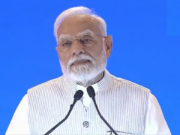
The report highlights that ‘1234’ continues to be the most prevalent PIN, accounting for nearly 11% of those examined. (Representational image: Shutterstock)
As per a report by Information is Beautiful, an analysis of leaked databases found that many individuals still choose common PIN numbers to protect their sensitive data
In the ever-present landscape of scams and cyber threats impacting countless individuals each year, a recent cybersecurity study has revealed that ‘1234’ still remains a popular choice for security PINs across various platforms, including Chip and PIN cards, phone passcodes, and more.
As per a report by Information is Beautiful, an analysis of leaked databases found that many individuals still choose common PIN numbers to protect their sensitive data.
The report highlights that ‘1234’ continues to be the most prevalent PIN, accounting for nearly 11 percent of those examined.
Other frequently used PINs include ‘1111’, ‘0000’, ‘1212’, and ‘7777’.
This analysis, based on data from “Data Genetics,” sheds light on both the most and least common four-digit PINs exposed in data breaches.
Additionally, the study found that out of the 3.4 million PINs examined, many individuals incorporated simple patterns into their security codes.
Here are the most common four-digit PINs:
- 1234
- 1111
- 0000
- 1212
- 7777
- 1004
- 2000
- 4444
- 2222
- 6969
On the other hand, the least common four-digit PINs are:
- 8557
- 8438
- 9539
- 7063
- 6827
- 0859
- 6793
- 0738
- 6835
- 8093
Jake Moore, a global cybersecurity advisor at ESET, underscored the risks linked with using simple or easily guessable passcodes, stating that they “enable attackers to target people more easily”.
“People put themselves at risk by having weak passwords and PIN codes and often do not fully understand the threat until they are compromised,” Moore told UK-based tabloid MailOnline.
Moore also highlights that poor cybersecurity practices significantly ease the task for hackers.
“People continue to use PIN codes that are commonly used or those that are related to them and easily accessible such as dates of birth,” he added.
‘70% of passwords can be cracked in less than a second’
According to research conducted by NordPass, a password manager, at least 70 percent of passwords can be cracked in less than a second.
“To make matters worse, almost a third (31 per cent) of the world’s most popular passwords consist of purely numerical sequences,” Tomas Smalakys, CTO of NordPass, told the publication.
Smalakys continued: “Such passwords can be hacked almost instantly, as hackers use automated systems rather than typing them out.”
































